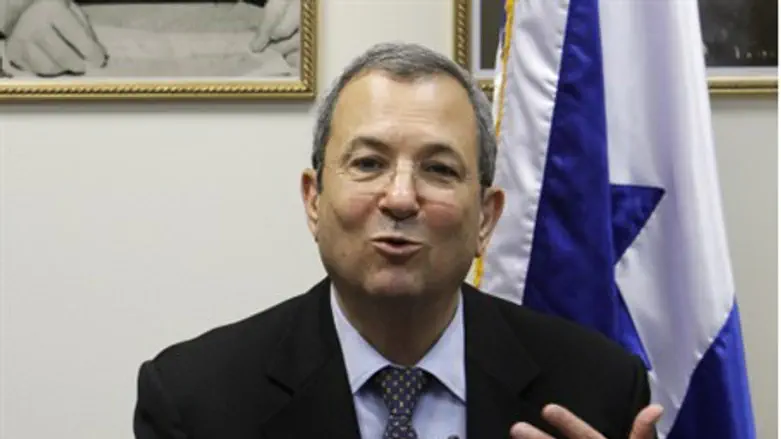
In his last appearance before the Knesset Foreign Affairs and Defense Committee as Defense Minister, Ehud Barak summed up recent events by saying that Israel should expect more instability on its northern border – instability that Iran was likely to take advantage of.
“We are watching developments in the north very closely, and there are two major issues,” Barak told MKs of the current committee, whose makeup would be changing with the formation of a new government by Binyamin Netanyahu. “We are on alert for the transfer of advanced weapons from Syria to Lebanon,” into the hands of Hizbullah terrorists, Barak said, as well as “the possibility that chemical or other weapons of mass destruction will fall into the hands of terrorists. We have said that if there is an attempt to transfer these weapons we will stop it.”
And there would definitely be attempts to undertake such transfers, Barak said. “It appears that the fall of Syrian President Bashar al-Assad is inevitable. In the end, the Alawite minority will be forced to retreat to a small part of Syria, probably along the coast.” Assad is a member of the Alawite group, with which which most Sunni and Shi'ite Muslims have sharp theological differences with.
Syria and Hizbullah were close allies of Iran and were receiving significant help from Tehran, Barak said. “Hizbullah now has more than 60,000 rockets and missiles at its disposal. We see the Lebanese government as responsible for what happens in the country, and it will be responsible for Hizbullah, and for other things that happen in the country as well,” Barak said.
In general, Barak said, there was still a strong unwillingness, perhaps even sharper than in the past, to accept Israel as a legitimate entity in the region. “The Middle East today is far less stable, because the forces leading much of it are Islamist. In the short to long-term, we can redefine the Arab Spring as an 'Islamic Winter,' as we see radicals leading it to social and national extremes,” Barak added.